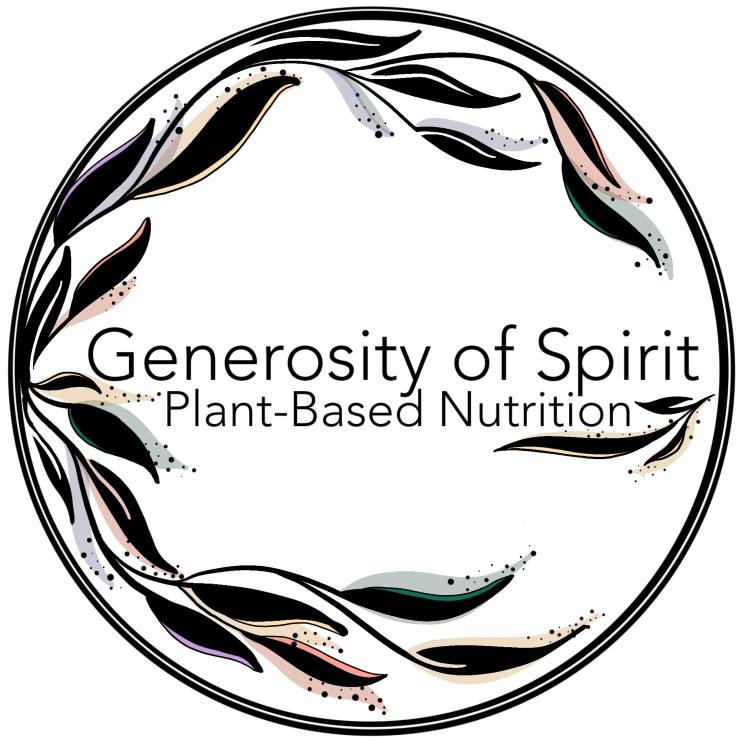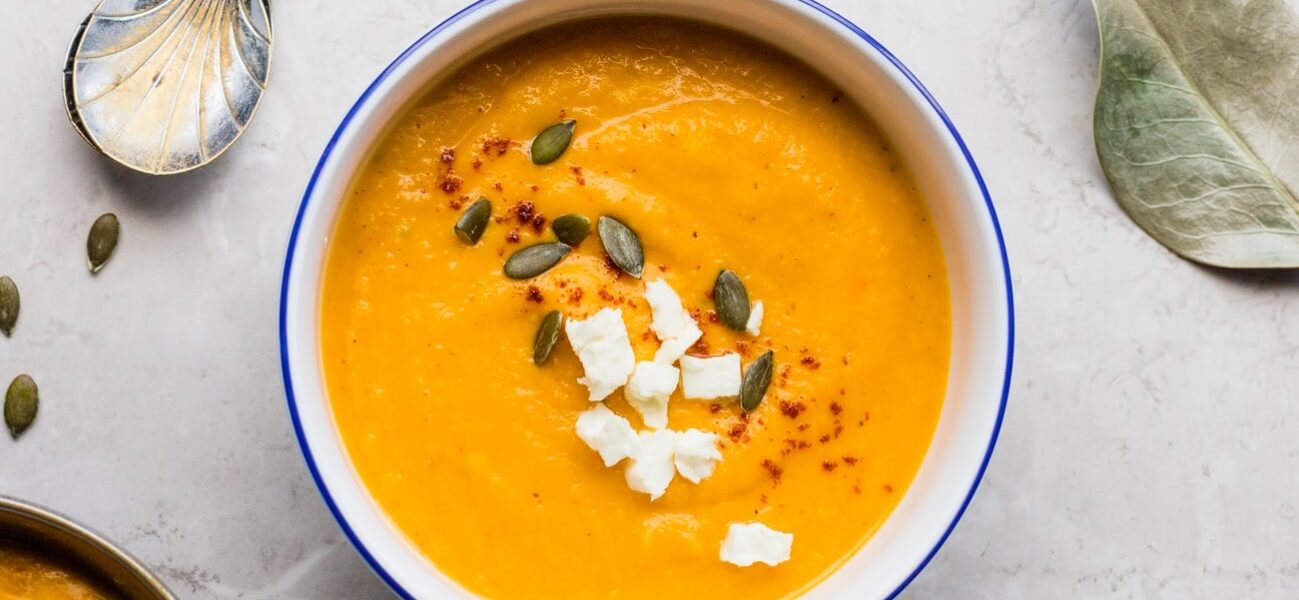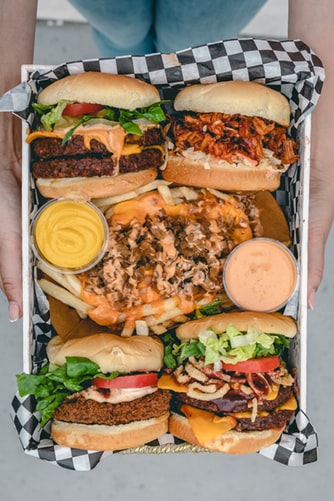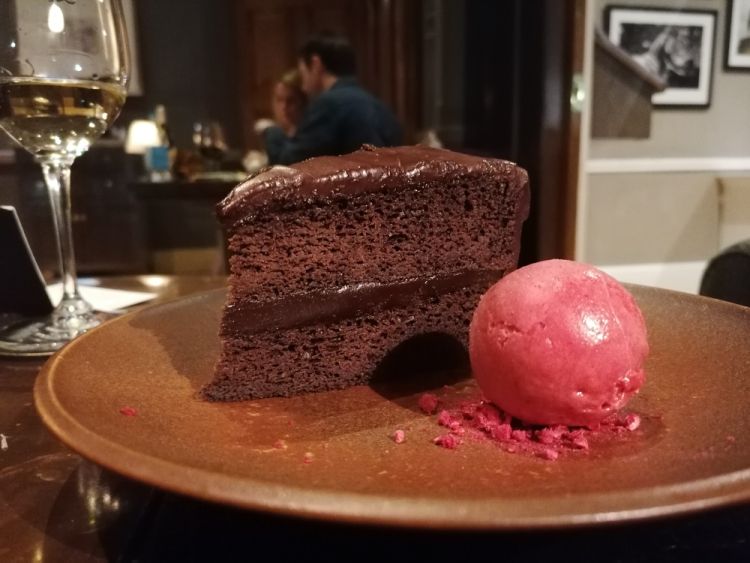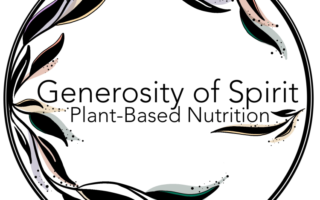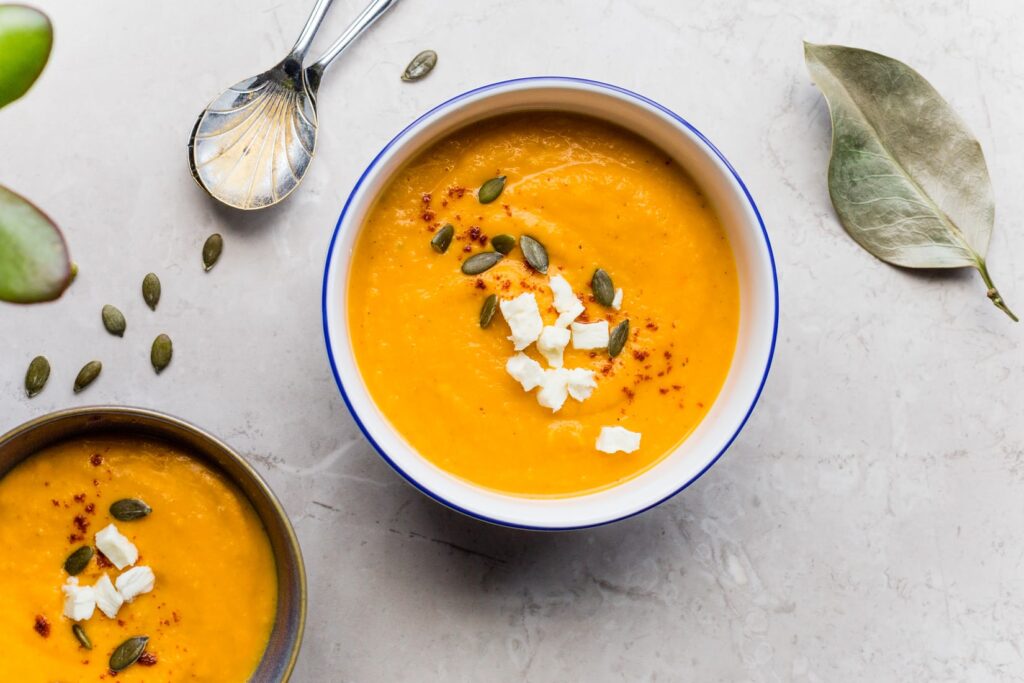
There’s a chill in the air, the leaves are turning shades of red, gold, and orange, and pumpkins are turning up everywhere from your neighbour’s doorstep, to the doorway of every supermarket, to your favourite coffee shop’s new spiced pumpkin latte.
I started to wonder about the health benefits of pumpkin and ways we can incorporate it into meals throughout the autumn season. In England, pumpkin isn’t used as widely in cooking as say butternut squash, but this humble vegetable, which is so prominent this time of year is actually a nutritional powerhouse!!!
Pumpkin Nutrition
Pumpkins are a type of squash and are packed with nutrients, low in calories, and high in fibre. They offer an essential range of vitamins and nutrients from vitamins A, C, E, and B-6 to potassium and folate. Pumpkin is also one of the best sources of beta carotene, a powerful antioxidant that contributes to many of its overall health benefits.
Over the years I have carved many a jack-o-lantern and shudder now at the waste of such an amazing vegetable. Both the pulp and seeds are edible.
Pumpkin Seeds
Pumpkin seeds are loaded with antioxidants that protect the brain and body from free radical damage. They also contain important nutrients like zinc, iron, copper, and magnesium.
The great thing about pumpkin seeds is that they are versatile and portable. You can sprinkle them on just about anything for a bit of crunch – for example salads, soup, yogurt bowls. They also make a great on-the-go snack simply on their own.
Cooking with Pumpkin
I definitely want to start cooking with pumpkin more, and while fresh pumpkin is fantastic – it is worth noting that canned organic pumpkin puree retains nearly all of the nutritional profile of a whole pumpkin, and it is obviously cheaper and more convenient! (Just watch out for the processed sugary pumpkin in a can mainly used for sweet dishes- buy organic where possible).
If you want to try cooking a pumpkin, it’s no harder than cooking any other type of squash. Choose a pumpkin with a few inches of stem remaining. It should also be hard and heavy for its size. Peel, de-seed, remove all the pulp and chop as you would a butternut squash. You can store uncut pumpkins in a cool, dark place for up to 2 months.

According to BBC Good Food here are the Top 5 health benefits of pumpkin:
https://www.bbcgoodfood.com/howto/guide/health-benefits-pumpkin
Top 5 Health Benefits Of Pumpkin
1. May support healthy skin
Pumpkins are packed with skin-friendly nutrients, including vitamins C and E, as well as beta-carotene, all of which play an important role in the health of our skin.
Vitamin C is not naturally made by the body, so it’s important we get it from our diet, as it plays a part in the formation of collagen which keeps skin plump and firm, vitamin C also helps prevent bruising and promotes wound healing.
Vitamin E is an excellent antioxidant and works with vitamin C to help protect against sun damage and dryness. Vitamin A, or beta-carotene, is also involved in skin protection from the sun’s UVB rays and may help protect against sunburn, although sunscreen is still needed!
2. May support eye health
Low levels of vitamin A has been linked with reduced vision and even blindness. Beta-carotene, as well as vitamins C and E, help protect eyes and reduce the risk of age-related eye diseases. Pumpkin is also an excellent source of two carotenoids called lutein and zeaxanthin, levels of which have been linked to a reduced risk of cataracts.
3. May support the immune system
As indicated by their bright orange colour, pumpkins contain beta-carotene, which is converted to vitamin A when consumed. Research has demonstrated that vitamin A plays an important role in promoting immune function. Vitamin C also contributes to immune activity facilitating immune cell activity and increasing white blood cells.
4. May help reduce the risk of metabolic syndrome
Metabolic syndrome is the medical name for a combination of conditions including diabetes, obesity and high blood pressure. Collectively, these conditions increase your risk of coronary heart disease and stroke.
A 2015 study in Japan found that diets high in carotenoids, which are pigments found in fruit and vegetables that give them their orange, yellow and green colours, may help prevent the development of metabolic syndrome.
5. May help prevent cancer
While there are no single ‘superfoods’ that can prevent cancer and certain risk factors for cancer are unrelated to diet, there is evidence that eating a healthy diet can reduce the risk of cancer. In addition to this, the antioxidant properties of carotenoids, vitamins A and E, all of which are found in pumpkin, may protect against certain cancers, such as breast cancer.
Vegan Pumpkin Soup
Ok, so now we know how amazing the humble pumpkin is – let’s get cooking. I started with an easy vegan pumpkin soup recipe… it is a great recipe to start with, you can’t go wrong and it is delicious.
Tip. Don’t throw away the pumpkin seeds!!!!
Clean the seeds: Separate the seeds from the stringy pulp, rinse the seeds in a colander under cold water, then shake dry. Don’t blot with paper towels; the seeds will stick. Dry them: Spread the seeds in a single layer on an oiled baking sheet and roast 30 minutes to dry them out.
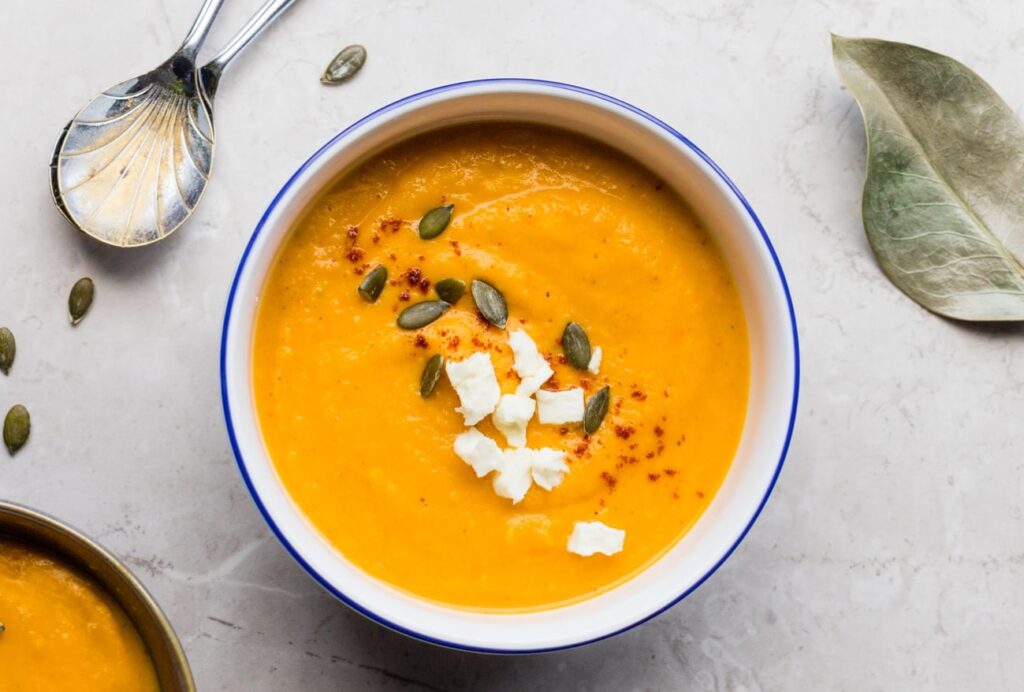
RECIPE:
Vegan Pumpkin Soup
Ingredients:
1 medium pumpkin or large squash (about 1½kg)
1 tbsp rapeseed oil
½ tsp ground allspice
1 large onion, finely chopped
1 tbsp chopped ginger
2 garlic cloves, crushed
1-1.2 litres vegan stock
1 tbsp vegan white miso
3 tbsp pumpkin seeds
1 tsp paprika
crumbled vegan feta cheese
1 lime, zested and juiced
Method:
1) Heat the oven to 200C/180C fan. Peel, de-seed and chop the pumpkin into 3cm chunks. Tip the pumpkin onto a baking tray, drizzle over half the oil, scatter with the allspice and toss well. Season and roast for 30 mins until golden and tender.
2) Heat the remaining oil in a large saucepan over a medium heat, and fry the onion for 5 mins until tender but not golden. Add the ginger, garlic and paprika- fry for another minute, then tip in 1 litre stock and the miso.
3) Put the roasted pumpkin in the pan, then bring to a simmer. Remove from the heat and blend the soup with a stick blender until smooth. If you prefer a thinner soup, add the remaining stock.
4) Return the soup to a gentle simmer, then season well and stir in the lime juice. Ladle into bowls, and serve topped with pumpkin seeds, crumbled feta and a sprinkle of paprika.
5) Enjoy with fresh crusty bread.
